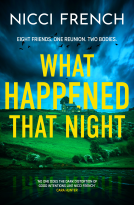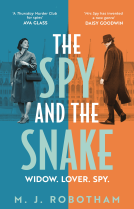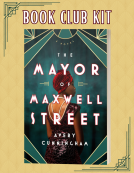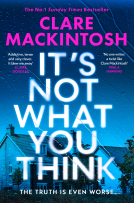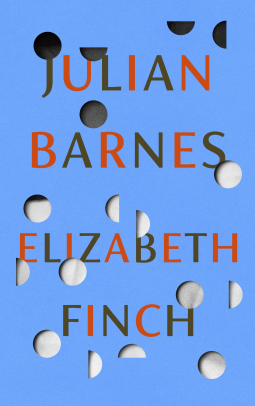
Elizabeth Finch
From the Booker Prize-winning author of THE SENSE OF AN ENDING
by Julian Barnes
This title was previously available on NetGalley and is now archived.
Send NetGalley books directly to your Kindle or Kindle app
1
To read on a Kindle or Kindle app, please add kindle@netgalley.com as an approved email address to receive files in your Amazon account. Click here for step-by-step instructions.
2
Also find your Kindle email address within your Amazon account, and enter it here.
Pub Date 14 Apr 2022 | Archive Date 14 May 2022
Random House UK, Vintage | Jonathan Cape
Talking about this book? Use #ElizabethFinch #NetGalley. More hashtag tips!
Description
We'd like to introduce you to Elizabeth Finch.
We invite you to take her course in Culture and Civilisation.
Her ideas are not to everyone's taste.
But she will change the way you see the world.
'The task of the present is to correct our understanding of the past. And that task becomes the more urgent when the past cannot be corrected.'
Elizabeth Finch was a teacher, a thinker, an inspiration - always rigorous, always thoughtful. With careful empathy, she guided her students to develop meaningful ideas and to discover their centres of seriousness.
As a former student unpacks her notebooks and remembers her uniquely inquisitive mind, her passion for reason resonates through the years. Her ideas unlock the philosophies of the past, and explore key events that show us how to make sense of our lives today. And underpinning them all is the story of J - Julian the Apostate, her historical soulmate and fellow challenger to the institutional and monotheistic thinking that has always threatened to divide us.
This is more than a novel. It's a loving tribute to philosophy, a careful evaluation of history, an invitation to think for ourselves. It's a moment to reflect and to gently explore our own theories and assumptions. It is truly a balm for our times.
About the author:
Julian Barnes is the author of thirteen novels, including The Sense of an Ending, which won the 2011 Man Booker Prize for Fiction, and Sunday Times bestsellers The Noise of Time and The Only Story. He has also written three books of short stories, four collections of essays and three books of non-fiction, including the Sunday Times number one bestseller Levels of Life and The Man in the Red Coat, which was shortlisted for the 2019 Duff Cooper Prize. In 2017 he was awarded the Légion d'honneur.
Available Editions
| EDITION | Other Format |
| ISBN | 9781787333932 |
| PRICE | £16.99 (GBP) |
| PAGES | 160 |
Average rating from 107 members
Featured Reviews
 Gillian F, Reviewer
Gillian F, Reviewer
I loved this book. I enjoyed the writer’s style of story-telling, mixing two different times in history; EF’s and Julian’s whilst bringing out the joy in both of them.
The story of EF and the obvious feelings of love and admiration our narrator felt for her was both ethereal and moving. There is something altogether joyful about the book and one I feel sure I will revisit.
 Peter W, Reviewer
Peter W, Reviewer
Another excellent book by Julian Barnes.
Elizabeth Finch is an enigmatic lecturer who the narrator falls in love with. The love is what I would call Platonic love, but he calls it Romantic-Stoic.
The other main protagonist in this novel is Julian the Apostate, and it is not easy to see how these would fit together, but the master story blender does it almost seamlessly, and I wasn’t exactly sure how they fitted together until the last paragraph of the book.
It is a multi-layered book, by that I mean that it can be read as a simple tale or you can search for the deep meaningfulness within it.
Julian is one of the most erudite authors I read, and probably the only one that could make such a novel work, but it certainly worked for me.
I will be reading the book again and will probably find some things that I missed first time.
I read this book in two sittings, but if not started late at night it can be managed in one. I have read most of Julian’s novels, and after reading this one I will go back and read some of the ones that I have not yet read, and wait patiently for his next!
Julian Barnes is, to me, the writer of the quiet voice that resonates the longest. Long after I’ve closed the pages of one of his books, my thoughts remain with the protagonists of his books and the themes they represent. Two such unforgettable literary characters appear here, in Barnes’s thirteenth novel, and are Neil, a young philosopher, and Elizabeth, his deceased former lecturer whose notebooks he curates. Full of philosophical threads that somehow always run back to Roman Emperor Julian, later Julian the Apostate, who died in the year 363 but whom Elizabeth considered her soulmate and historical predecessor, this is a demanding but magical book that was a great joy to read. Warmly recommended – to the readership Barnes has already, and to new readers who wish to engage with philosophical thought.
 Belinda M, Reviewer
Belinda M, Reviewer
I read this over two days and was constantly wanting to get back to it. By the end I am awestruck at the quality of Julian Banes writing and his scholarship.
He uses the tripartite device he used in ‘Levels of Life’. to create a structure allowing us to examine ideas and preconceptions in a nonheated version. Constantly changing and shifting the view/context to encourage a greater sense of ‘I hadn’t thought about it like that before.
The first and third sections focus on the life of Elizabeth Finch, the narrator’s perception of her and the final section shows how other saw her. Elizabeth Finch is an incredible construct, she is as credible and as magnetic as Elizabeth Strout’s Lucy Barton or the McPherson brothers in Kent Haruf’s Plainsong trilogy.
I must admit I’m a bit of a nerd, so I really enjoyed the middle section and the long essay on Julian the Apostate. Fantastic. In this section he creates an incredible feat of writing. It’s thought provoking and informative. The potential of an alternative world in which the alliance of Christianity and state had not happened.
On top of this you get quite a lot of philosophy! That makes it sound as if it is dry as a bone. It certainly isn’t. The writing is luminous, the characters are immensely appealing and human, and you are constantly bombarded with new things to think about and take on board. Julian Barnes creates an important sense of truth and questioning in a fictional novel.
I really enjoyed this and would heartily recommend it. In fact, although I received a free copy via NetGalley I will be buying copies for friends when it is published.
Readers who liked this book also liked:
We Are Bookish
Historical Fiction, Literary Fiction, Multicultural Interest

